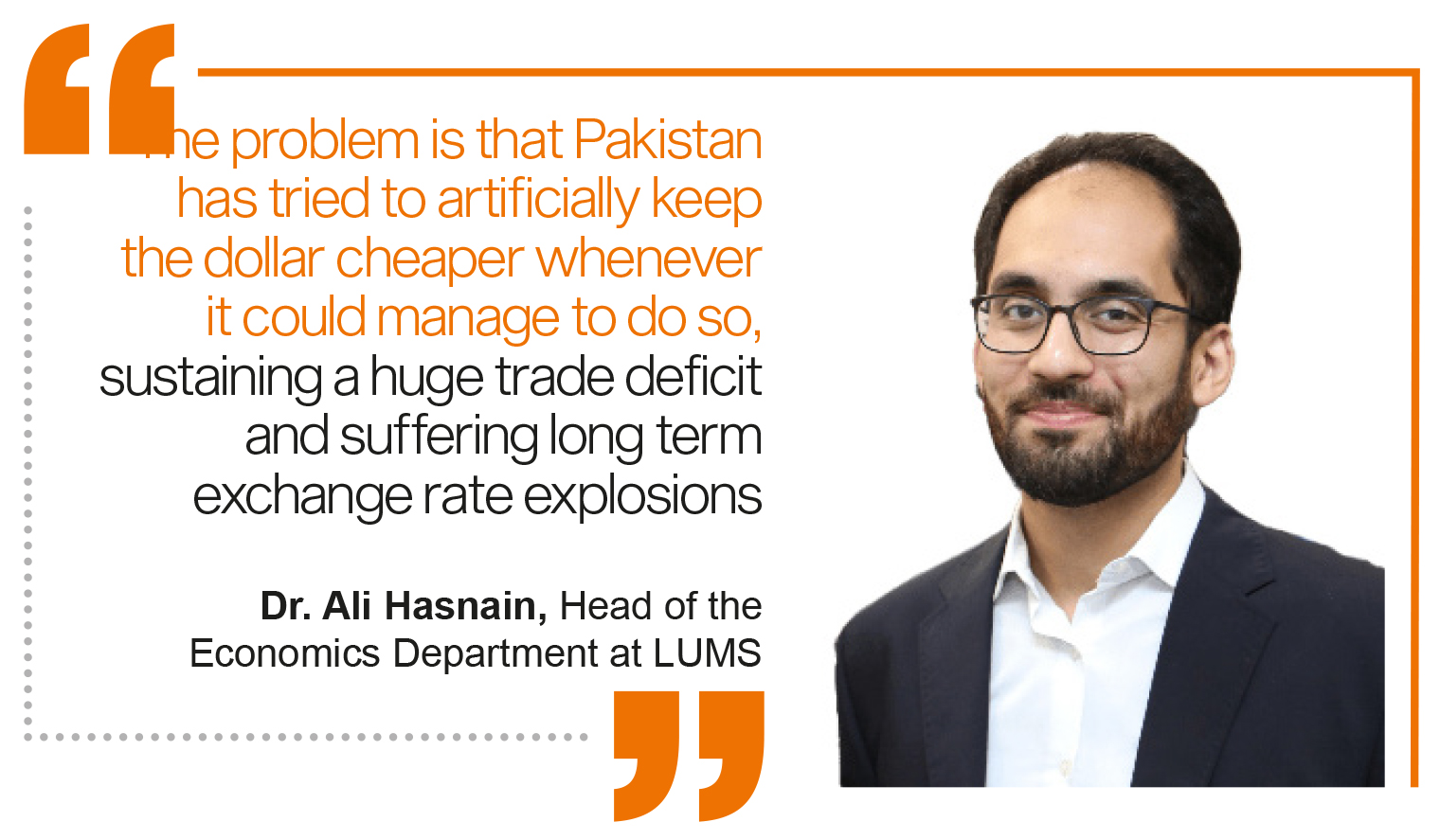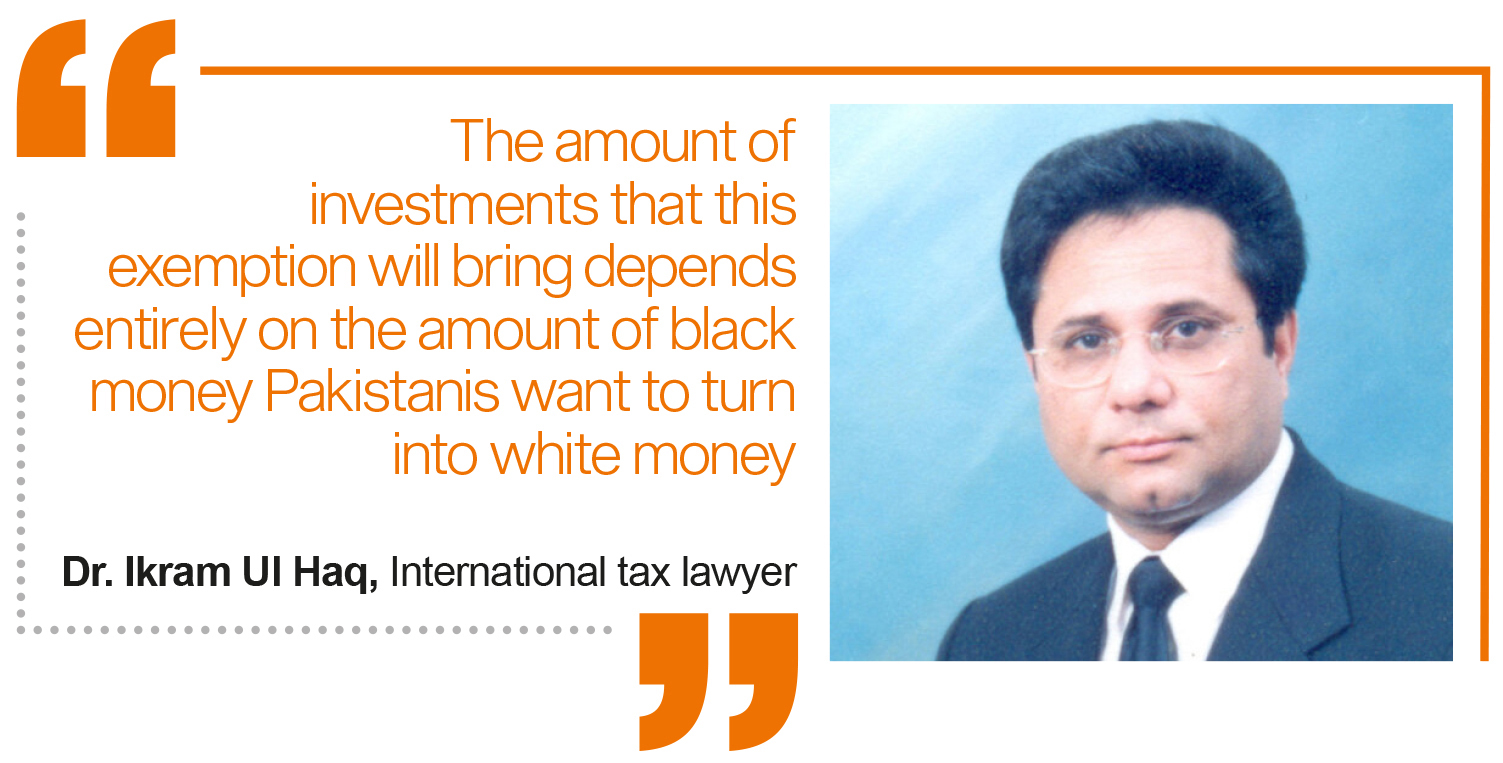The last few years have experienced a rise in magic and mysticism in Pakistan’s political landscape with election results and policy decisions allegedly reliant on wizardry and spellwork. However, the recent announcement of the Federal Budget of 2023-24 depicted an unorthodox version of political sorcery when a financial document that was meant to aid Pakistan’s economic development magically turned into a proclamation of friendship.
On June 9th, Finance Minister Ishaq Dar presented the Federal Budget for FY 2023. Amongst other things, the budget included abolishing the 2% final tax on the purchase of immovable property for overseas Pakistanis with the intent to boost remittances through formal channels amid dwindling foreign exchange reserves and a potential default situation. To investigate the validity of this clause, we spoke with Dr. Ali Hasnain, Head of the Economics Department at the Lahore University of Management Sciences, and Dr. Ikram Ul Haq, an international tax lawyer and contributor to the International Bureau of Fiscal Documentations (IBFD). So far unrigged, the results are heavily in opposition to the government.
Undeniable facts
It is undeniably true that Pakistan’s current economic situation is terrible. It is also true that our foreign exchange reserves have almost entirely run out, which, as highlighted by the aforementioned exemption clause, must be solved. Unfortunately, this acknowledgement is the limit to the clause’s usefulness for our economy.
The reality is that Pakistan has an import to GDP ratio of about 17 percent which is surprisingly in the same ballpark as India and Bangladesh. The damage lies in the ratio of exports of goods and services to GDP which for India stands at over 21.4 percent whereas for Pakistan only a little over a concerning figure of 9 percent. This becomes even more alarming with the realization that the size of Pakistan’s entire economy is $370 billion USD while our external debt is close to around $121.75 billion USD. This could have been less of a problem if Pakistan’s economy was not expanding at a leisurely annual rate of 0.3% (from June 2022 to July 2023).

Dr. Ali Hasnain was thus able to highlight that there are two solutions to this magnanimous problem: first, increase Pakistan’s export-capacity and second, increase foreign direct investments in the country. Interestingly, by encouraging investments in real-estate, an unproductive sector of the economy, removing the 2% final tax on immovable property achieves neither of the two.
Pakistan’s Anti-Export and Anti-Expert Bias
To understand the solutions suggested by Dr. Hasnain, it is integral to first understand the basis of our economic conundrum. Why is Pakistan a dollar-poor economy?
“This is a slightly complicated conversation because in order to deal with the balance of payment constraints, we often have to take decisions that damage long term growth rates. For instance, Gonzalo Verala says Pakistan has an anti-export-bias, well I say we also have an anti-expert-bias.” The Economist further adds, “The problem is that Pakistan has tried to artificially keep the dollar cheaper whenever it could manage to do so, sustaining a huge trade deficit and suffering long term exchange rate explosions…”
And so, overtime, Pakistan has accustomed its elite to build their interests around cheaper US dollars. Therefore, as the dollar value decreases, the purchasing power of the elite increases which in turn sustains import positive policies.
But how is this linked to the 2% final tax exemption?
This is because the exemption doubles up on precisely the strategy that has landed us here. The real-estate sector is a sector that adds little to no stimulus to the economy, and is heavily import reliant, which means that it does not help create dollars for a dollar-poor country, but instead absorbs huge amounts of foreign reserves. Simply put, construction materials for real estate are rarely domestically produced, therefore, this exemption shifts our industrial posture further away from import substitution.
“If you are an investor, to join an export-led business you must be a tax compliant citizen ready to face the legal hindrances put forward to disincentivize exports. On the other hand, the real estate sector does not even require official receipts, let alone tax filing investors. It is also a sector in which the government has successfully diminished competition and entry barriers.”, added Hasnain.
Therefore, the repercussions of another tax exemption are huge. In the past, they have signaled to Pakistan’s industrialists that they no longer need to create speculative bubbles on their lands running risky yet productive industries, but that they should rather focus on real estate development. Packages Mall built on factory land in Lahore is a prime example of this. Currently, these exemptions signal to overseas investors that Pakistan’s businesses and other financial assets, except for the real estate sector, are useless to invest in. They also signal to local residents that the real estate sector is a viable investment.
Why do successive governments support and promote the real estate sector?
One aspect of this answer is purely speculative. The speculation, however, rests strongly on precedents, such as Syed Mohammad Shabbar Zaidi, former Chairman of the Federal Board of Revenue, being asked by then Chief of Army Staff, Gen Bajwa, to discourage real estate taxations.
Up until last year’s pre-budget meetings, current prime minister Shehbaz Sharif exclaimed that the real estate sector was unproductive and therefore, should be taxed more in order to disincentivize its investments. What changes have been made since, again, can only be speculated.

Nonetheless, Mancur Olson’s logic of collective action comes to mind wherein he says that the losses of some things are diffused in small quantities to the whole society and the benefits are flooded to only a few individuals. Yet, despite the net losses being more than the benefits, since they are diffused, there is little political salience and action.
What benefits will removing the 2% final tax actually bring?
This is perhaps the most important segment of this entire discussion.
Dr. Ikram Ul Haq explained it plainly when we reached out to him. “The amount of investments that this exemption will bring depends entirely on the amount of black money Pakistanis want to turn into white money.”
In a debilitated economy with hyperinflation and severe devaluation, Dr. Haq raises a pertinent question as to why overseas investors would want to invest money in Pakistan’s land? Not only that, but repatriating money for overseas investors from real estate property has become increasingly difficult. With both these factors in question, it seems unlikely that this clause in the federal budget will bring in the dollars to Pakistan’s foreign reserves that Ishaq Dar expects.
On the other hand, Dr. Haq predicts that there is no such expectation in the first place. Similar to the proposed provisions in the Finance Bill earlier this year to allow $100,000 to be brought into the country without disclosing the source of income, he said this clause is purely an effort to re-route illegal or non-taxable income of Pakistanis from abroad. This is interesting because it also enables the current government to present this recycled income as positive “investments” under their new policy.
However, beyond the evident problems with this exemption, which is that it validates and strengthens the positions of the rich and the landed elite, it may also create speculations within bigger international players like the IMF and the FATF. By entitling potential black money as remittances coming into the country, the FBR may not have the opportunity to gather relevant information related to the transactions that happen under this clause.
Conclusively, the consistent formulation and implementation of policies by the government that are explicitly against Pakistan’s economic requirements is the equivalent of a first aid worker further suffocating a dying patient instead of resuscitating him.


























Well written I hope such frank analysis of our economy will bring some sane decisions from the government
A Very well written analysis of the economic situation of our country.
A well written analysis of our country s economic situation.
Interesting points there. Unfortunately, as aptly explained in the article, the decision makers are intensely focused on real estate, often at the expense of industrial development.
I really doubt that the tax exemption will bring in any advantage to the country and probably will be reverted in a few months causing further damage.
Low Fade Haircuts are popular now a days